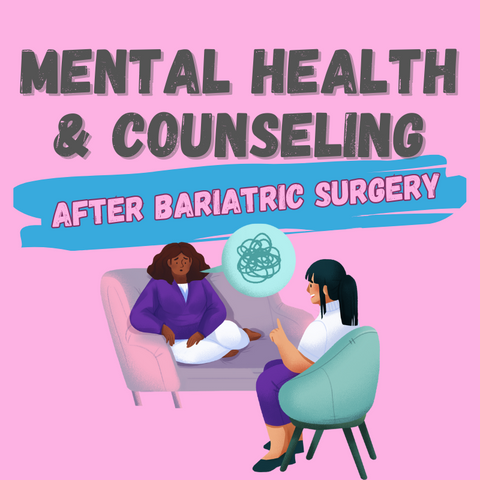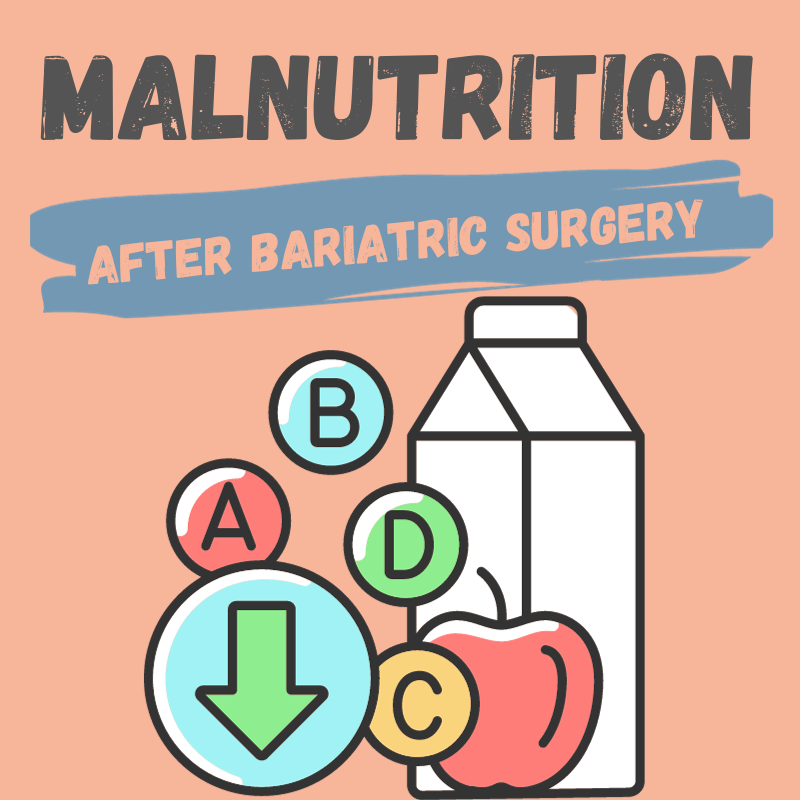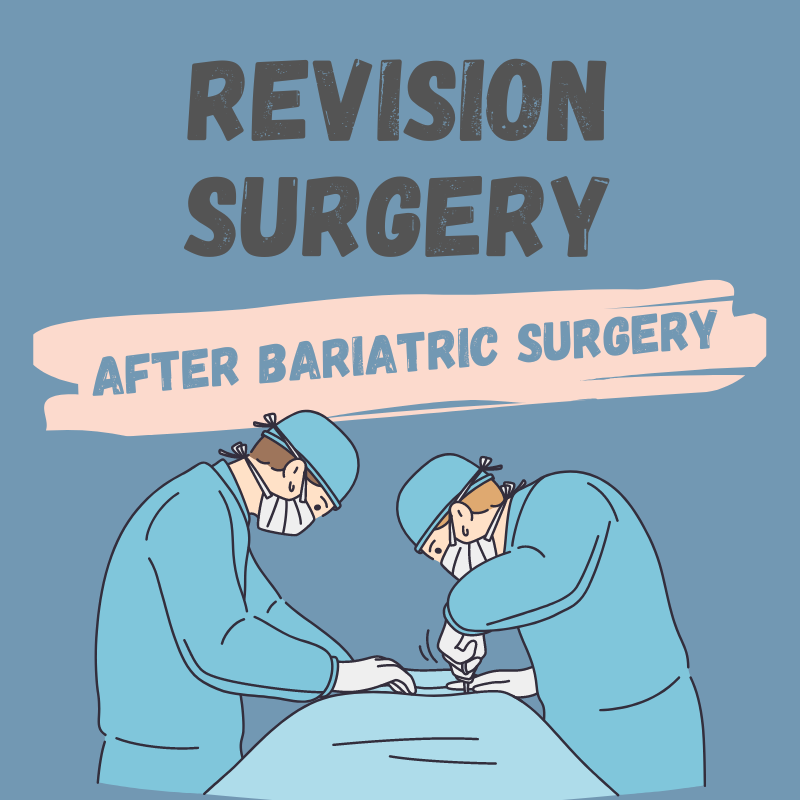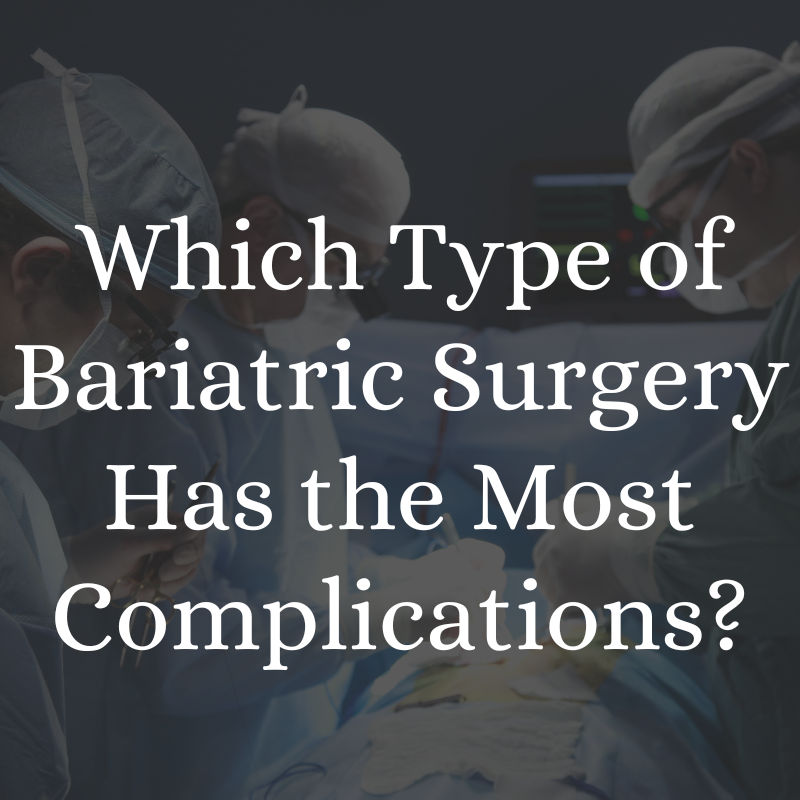Your cart is empty
Mental Health & Counseling for Bariatric Patients

Understanding The Importance of Mental Health After Bariatric Surgery
While the focus is often on the physical transformation, it's important not to overlook the emotional challenges that can arise after bariatric surgery, such as depression, anxiety, and body image issues. Counseling can be a valuable post-operative tool to help patients navigate the emotional side of their journey.
The Mental Health Challenges of Bariatric Surgery
After bariatric surgery, patients often experience a range of emotional challenges. These can include depression, anxiety, body image issues, and even feelings of regret. The reasons for these emotional challenges are varied, but common factors include changes in body shape, social stigma, and adjustments to a new lifestyle. These changes can also lead to feelings of isolation, frustration, and overwhelm, which can affect mental health.
One of the most common emotional challenges experienced by bariatric surgery patients is depression. This can be caused by a variety of factors, including the stress of surgery, hormonal changes, and the difficulty of adjusting to a new lifestyle. Anxiety is another common emotional challenge that can arise after surgery. Patients may experience anxiety about their weight loss progress, or about their ability to maintain their new lifestyle.
Body image issues are also common after bariatric surgery. While patients may feel excited about their weight loss and newfound health, they may also feel self-conscious about excess skin or other physical changes. This can impact a patient's self-esteem and overall well-being, and can be difficult to navigate without proper support.
Benefits of Counseling After Bariatric Surgery
There are numerous benefits to counseling after bariatric surgery, and these benefits can stick with you for life, including:
- Improved mental health: Many patients may experience anxiety, depression, or other mental health conditions after surgery due to the significant lifestyle changes and adjustments.
- Increased self-awareness: Bariatric counseling can help patients understand and address the underlying emotional factors that may be hindering their weight loss journey.
- Enhanced communication: Effective communication is critical in all aspects of life, including relationships with family and friends. Counseling can provide patients with the tools they need to communicate more effectively, leading to stronger relationships and better support systems.
- Better decision-making: Patients who have struggled with their weight for a long time may have difficulty making healthy choices. Counseling can help patients develop healthy decision-making skills.
- Increased accountability: Making lasting lifestyle changes can be difficult, and it's easy to slip back into old habits. Counseling can provide patients with the support and accountability they need to stay on track and make lasting lifelong changes.
How to Find a Bariatric Counselor After Surgery
Finding a counselor, or bariatric psychologist, after surgery can be a daunting process, but it's worth the effort to find a mental health professional who specializes in working with bariatric patients. Here are some tips to help you find a counselor that's right for you:
- Ask your surgeon for a referral. Your surgeon may have experience working with counselors or bariatric psychologists who specialize in helping patients
- Check with your insurance provider to see what mental health services are covered under your plan. It’s good to know that your counselor is covered by your insurance.
- Look for local mental health clinics in your area. Most mental health clinics will have a counselor or a bariatric psychologist that has experience working with bariatric patients.
- Consider online counseling services. Online bariatric counseling services can be a convenient and accessible option for those who may have limited access to in-person mental health support. Online counseling services can provide you with the same level of care and support as traditional counseling, but from the comfort of your own home. This can be especially helpful for those who live in remote areas or have limited mobility.
A really important factor to consider is finding a counselor or psychologist who has experience working with bariatric patients. This can help ensure that the counselor you choose is familiar with the unique challenges and emotional complexities that can arise after weight loss surgery. If you try out a counselor and end up not feeling comfortable with it, don’t be afraid to look for a new counselor. You’ll find someone that makes you feel comfortable and confident.
Changes In Nutrition
Besides thinking about the feelings involved with losing weight, it's really important to know how to eat right after having bariatric surgery. When thinking about mental health and counseling for bariatric patients, don't forget to also think about the drastic changes in your diet. Our easy-to-understand guide on Nutrition After Bariatric Surgery has helpful information about the changes in your diet, the importance of vitamins and minerals, and how to navigate these big changes. By focusing on good eating habits, bariatric patients can alleviate some of the bigger mental issues that come with a life changing event such as bariatric surgery.
Conclusion
Bariatric surgery is a life-changing decision that requires ongoing physical and emotional support. Counseling can be a crucial aspect of post-operative care that helps bariatric patients navigate the emotional challenges of their weight loss journey. It can provide patients with the support and tools they need to manage stress, develop healthy coping mechanisms, and enhance overall well-being. If you're considering bariatric surgery or have already undergone the procedure, consider incorporating counseling into your post-operative care plan to improve your mental health and overall well-being, you will be happy you did!
Bariatric Guides & Information
More Info
Customer Favorites
- Choosing a selection results in a full page refresh.




























